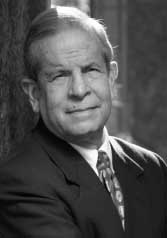-
- Seattle clears way for same-sex marriage
- Judges may have to quit groups that discriminate against gays and lesbians
- Voters pass same-sex marriage amendment
- Washington decides not to intervene and force down AIDS drug price
- DA lashes out at use of gay panic defense
- Judge hears arguments on bid to legitimize polygamy
- National News Briefs
- World News Briefs
national
Judges may have to quit groups that discriminate against gays and lesbians
American Bar Association debating change to ethics rules
Published Thursday, 12-Aug-2004 in issue 868
ATLANTA (AP) – Judges are on the front line of battles over legal rights for same-sex couples and should never belong to an organization that discriminates against gays and lesbians, supporters of a proposed change to American Bar Association ethics rules argued.
Judges are already prohibited from joining clubs that discriminate based on race or sex. An ABA panel is debating whether to make groups that discriminate against gays off limits as well.
The ABA, the nation’s largest lawyers’ group with more than 400,000 members, writes conduct rules for judges and lawyers. States and federal courts generally adopt them, with some changes.
It is not known how many judges participate in groups such as the Boy Scouts that have policies against hiring or having gay and lesbian leaders, or some veterans groups that restrict membership to heterosexuals.
The ABA held an all-day public hearing on proposed judicial ethics changes during the association’s summer meeting. Rules on gifts judges may accept and judges’ involvement in fundraisers may also be changed. The ABA is not expected to vote on any changes until next year. It would be the first overhaul of the rules in more than a decade, and any changes eventually could affect thousands of judges.
Meanwhile, a new report by the Government Accountability Office, Congress’ auditing arm, shows that some judges request – and receive permission – to withhold information about gifts from the public on the premise that their safety could be compromised. The ABA ethics panel is considering redefining a gift, possibly to include paid trips to seminars.
“It’s critical for the public to know who’s wining and dining the federal judges,” said Douglas Kendall, executive director of the Community Rights Counsel, who appeared before the panel.
The proposed change to membership in groups that discriminate against gays and lesbians is energized in part by the Supreme Court’s ruling a year ago that states cannot “demean” same-sex couples by punishing their sexual conduct.
That decision has spawned multiple gay rights cases around the country, including Massachusetts’ ruling to legalize same-sex marriage. Most recently, a judge ruled that a same-sex marriage ban violates Washington State’s constitution.
The leader of the ABA commission, Phoenix lawyer Mark Harrison, said that without getting into a political debate about the rights of gay and lesbian couples to marry, the panel wants to “make sure that judges aren’t viewed as bigots.”
New York University ethics expert Stephen Gillers said GLBT people involved in court cases “should not be asked to trust the fairness of a judge” who belongs to a discriminatory club.
“Judges are human beings too. They should be allowed to exercise their First Amendment rights of free association,” said Frederic Smalkin, a senior federal judge who teaches law at the University of Maryland.
Smalkin said it could be difficult to define what organizations are acceptable. “Does that mean a judge could not belong to the reserves or National Guard?” he asked.
Brian Fahling, an attorney with the Mississippi-based American Family Association, said judges with religious objections to homosexuality should not be forced to follow such a rule.
“Sexual preference is not like race. It’s not like gender. To lift that up as something virtuous … I find it deeply troubling,” he said.
A few states have already addressed the question. In California, for example, a one-year-old rule requires state judges to disclose if they are members of groups like the Boy Scouts.
“It didn’t convey the symbolic message that belonging to groups that discriminate based on sexual orientation is always unacceptable for a judge,” said Jon Davidson, senior attorney for Lambda Legal in Los Angeles. “But it essentially had the effect of making it difficult for judges to continue to belong.”
It is not known how well current rules on membership in discriminatory clubs are being followed, in part because any punishments can be private. Ethics experts said judges generally comply because they fear the consequences of public disclosure.
|
|
Copyright © 2003-2025 Uptown Publications


